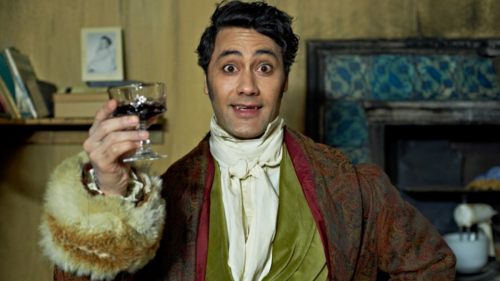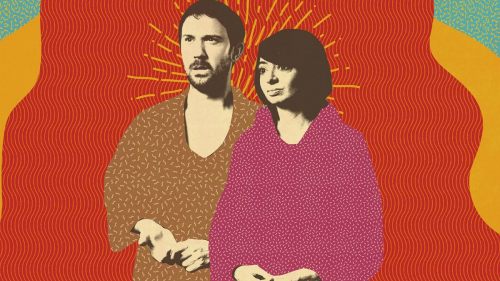Blinkered Malice: Evil In The Films Of Taika Waititi
Jojo Rabbit is almost here. Get your tickets now!
Taika Waititi’s films take place in worlds where the heightened and the everyday are one and the same. In What We Do in the Shadows, Vampires (as well as werewolves and other varieties of supernatural folk) exist. They’re as likely to quarrel over whose turn it is to do dishes as they are to brawl over one of their number cluelessly alerting an amateur vampire hunter. In Hunt for the Wilderpeople, a would-be-tough teenager and his surly adoptive uncle flee into the New Zealand bush to escape from the government. The development of their relationship is as important to their survival as is evading their increasingly relentless pursuers. In Thor: Ragnarok, the Norse god of thunder’s long-lost sister Hela (Cate Blanchett) returns from exile, vowing to conquer existence. Thor coming to terms with his late father Odin (Anthony Hopkins)’s failings and his own doubts is vital to stopping her – even more than learning to wield his powers to their fullest extent. The worlds Waititi spins and the tales he tells are gloriously zonked and frequently hilarious. Simultaneously they’re insightful, thoughtful studies of humanity. Furthermore, Waititi depicts evil as something intensely dweeby. Waititi’s villains, even Blanchett’s fairly stern Hela, are lost in their own worlds. They’re clueless and more than a bit absurd. It’s funny. And, once the laughter subsides, a fairly astute observation on the nature of wickedness.
What We Do in the Shadows’ vampire flatmates are the picture’s protagonists but, lovable though they are, they’re all at least a little bit evil. They kill casually – one memorable argument between Waititi’s Viago and Jemaine Clement’s Vladislav turns on the latter ruining the former’s antique couch by getting blood all over it. Viago is far more upset about his furniture than he is some poor schmuck getting gnawed on. Yes, drinking blood comes with the vampire package, but the disregard with which they treat their victims stands out given that they can and do care about people – charmingly milquetoast software developer Stu (Stu Rutherford) for instance, or Viago’s beloved Katherine (Ethel Robinson). But, when it comes time for a snack someone they don’t care about might as well be a sandwich – ideally a sandwich that no one has had sex with. Beyond their frequent murders, the flatmates can be impressively oblivious to anyone’s needs other than their own. Case in point, Vladislav describes his infamous history as a torturer as a sign that “I was in a bad place.”
Hunt for the Wilderpeople’s overzealous child services worker Paula (Rachel House) does not murder people willy-nilly. But her contempt for a boy she’s supposed to be protecting and her obsession with being an action hero reveal her morality to be severely warped all the same. Wilderpeople’s young hero Ricky Baker (Julian Dennison) has had a rough go. He’s built up a hard-edged shell to protect himself and done his fair share of acting out. Paula sees Ricky only as “a real bad egg.” She speaks of his assorted misdemeanors as though they were the crimes of a master criminal. And when Ricky takes off into the bush rather than return to the foster system after his adoptive Aunt Bella (Rima Te Wiata)’s death, Paula goes to war. She continually escalates her conflict with Ricky until she’s riding an armored personnel carrier and commanding a fleet of police and hunters in pursuit of the boy and his adoptive Uncle Hec (Sam Neill). As Wilderpeople progresses, Paula comes to view her pursuit of Ricky and Hec as a grand battle, one in which she’s the crusading hero:
Never mind that Paula’s supposed to be the one advocating for Ricky. Never mind that New Zealand child services are in no way equivalent to the movie version of American police. Never mind that the level of force she ultimately brings to bear in her hunt for Ricky is so disproportionate that it crosses into the realm of the absurd. Paula’s the hero. At best, Ricky is an object to be retrieved. At worst, he’s her villain.
Thor: Ragnarok’s two primary villains – Blanchett’s Hela and Jeff Goldblum’s Grandmaster, operate at both macro and micro levels of wickedness. Hela’s grand speeches and plots of universal conquest coexist alongside her pettily abusive behavior to her younger brothers Thor and Loki. The Grandmaster’s thinly painted-on affability and oozing sleaze coexist alongside his breathtaking cruelty and masterminding of a culture that has put him on top of everyone else. While their motivations and personalities are starkly different from one another, both Hela and the Grandmaster display an unsettling, almost childish drive to be the most important person in the world. Grandmaster constantly needs to burnish his own self-image – whether through emphasizing that the Hulk (Mark Ruffalo) is his gladiatorial champion or trying to claim credit for the revolution that rose up to overthrow him. Hela is less openly needy in her pursuit of power and recognition. But her confrontations with Loki and Thor consistently see her try to belittle and bully them. She conflates their very existence with Odin’s decision to erase her (and Asgard’s time as an actively imperial power) from history – one of many moral failures on his part, but one his sons are in no way responsible for. It is not enough for Hela to overthrow her brothers and return Asgard to its warmongering days. No, she aims to repay her father’s insult by breaking his other children – as if by maiming and mocking Thor she will affirm her own might. It’s telling that, during their climactic battle, Hela aims to humiliate Thor first and kill him second – still trying to make the same point to him she had already made when she shattered Mjolnir.
Evil, in Taika Waititi’s films, is both fundamentally ridiculous and fundamentally blinkered. His heroes may be eccentric goofballs themselves, but they possess an awareness of the world and an emotional intelligence that enables them to grow and change. Ricky Baker, Hec, Thor and even What We Do in the Shadows’ evil-but-capable-of-empathy vampires are changed by their experiences. Paula, Grandmaster and Hela remain static – too caught up in their obsessions and foibles to do anything but charge forwards and demand the world change to suit their desires. They pay no mind to other people because other people aren’t a part of their worlds beyond the most superficial level. They’re hilarious. They’re dreadful. They’re malignant dweebs. And, when setting aside the heightened nature of their actions, they’re a sharp study of how pathetic that sort of cruelty and viciousness truly is.


